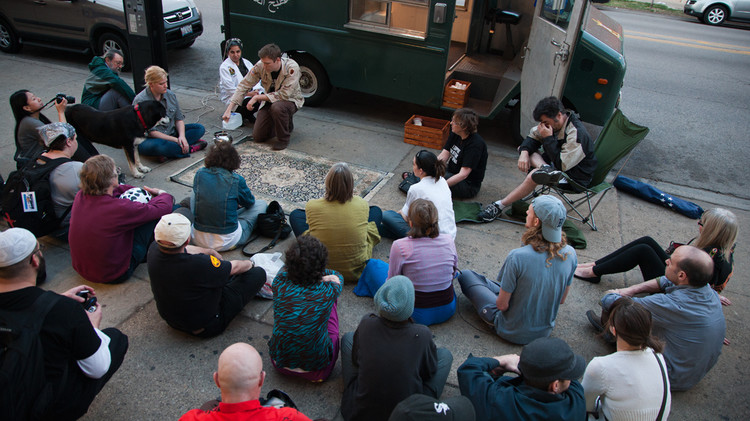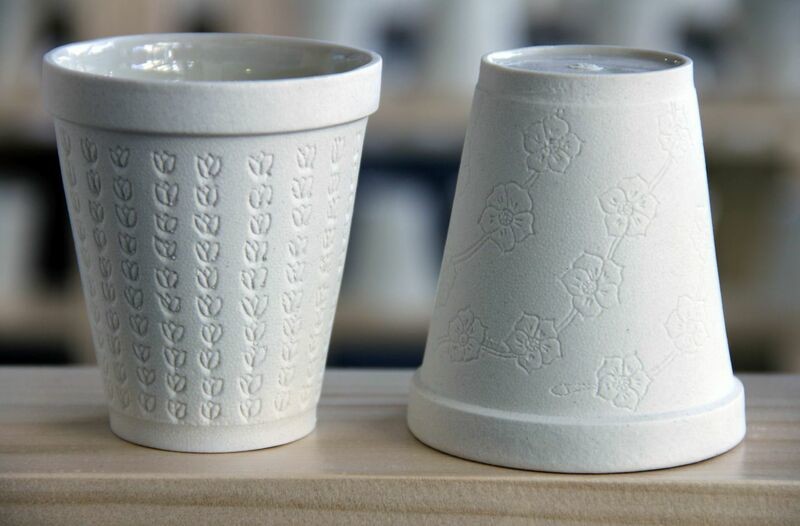Aaron Hughes went to Iraq in 2003 as part of an invading army. He returned in 2009 as part of a peace movement.
Since then, the American soldier turned artist-activist has adopted the popular, everyday Iraqi ritual of sharing tea in a performance and discussion that has taken Hughes around the world.
Tea proves a sometimes startling, sometimes ungainly vehicle for reflection and conversation on war, dehumanization and its opposites. This Memorial Day weekend, it concludes a three-week run at the Imaginists’ storefront theater in Santa Rosa.
For most of the performance, Hughes — 30-years-old and boyish-looking with a lanky frame, blond hair and khaki army shirt over his civilian dress — sits cross-legged on the floor of the theater, manipulating a hotplate and a double-decker teakettle set on a small Persian rug.
The audience sits around him. One side of the space is accented by rows of individually crafted, lightly etched ceramic cups. Inspired by the drawings on Styrofoam cups by Guantanamo detainees, each cup represents one of the 779 men held there.



